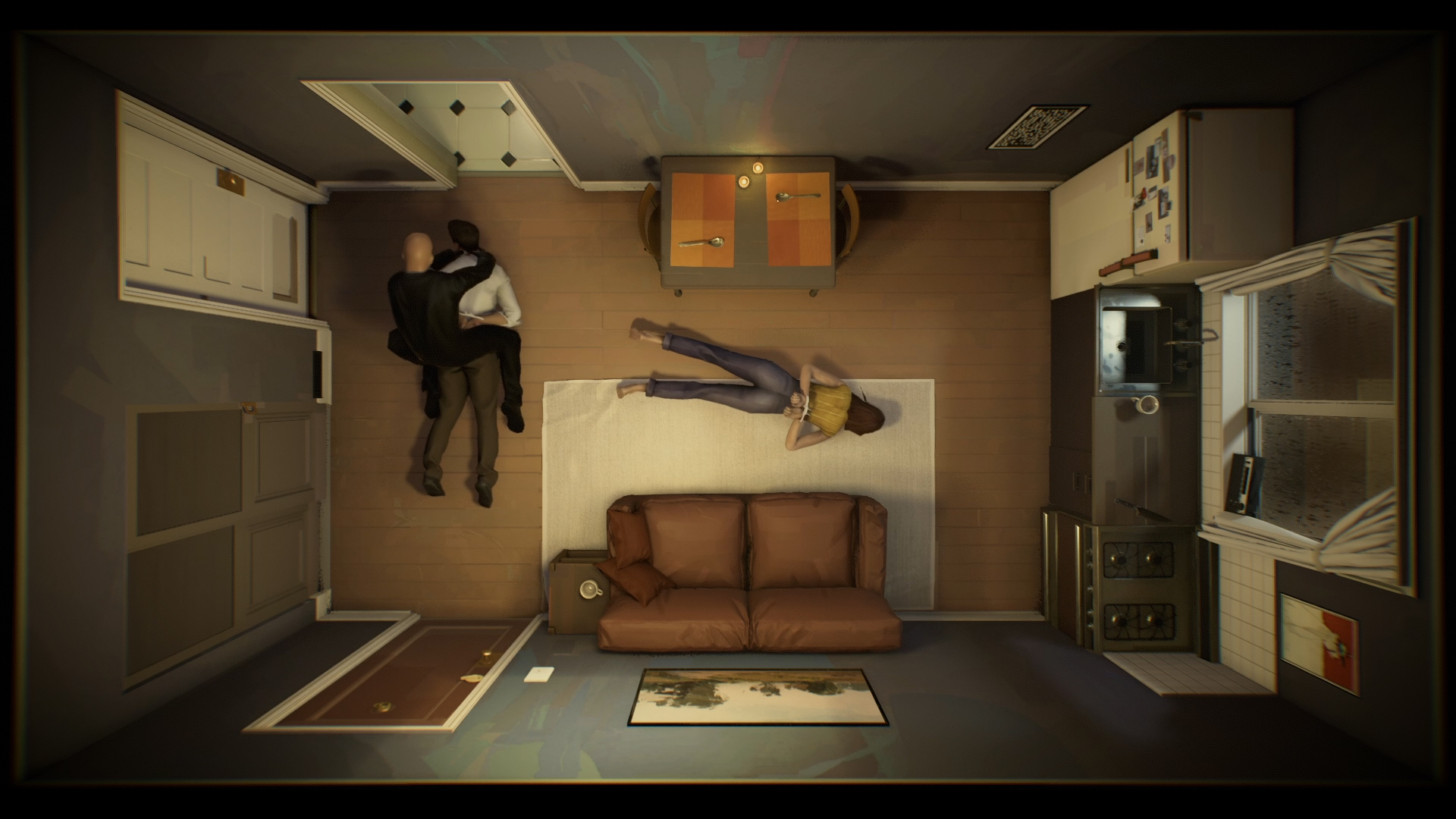12 Minutes is a time loop mystery full of little surprises
Try to stop Willem Dafoe from killing you over and over again without ever leaving your apartment.

Willem Dafoe's face as the Green Goblin in Spider-Man still haunts me. I've been scared of Dafoe for going on 20 years, and 12 Minutes is proof that that fear remains strong even when I can't see his ghoulish grin. And in 12 Minutes, I have good reason: he choked me to death.
That was the first time an aggressive cop, voiced by Dafoe, broke into my apartment and accused my wife of being a killer. It wouldn't be the last. 12 Minutes is a time loop game, a miniature Groundhog Day mystery that hinges on this break-in and the buried history behind it. Before I played 12 Minutes, I didn't expect my character to be aware of the time loop—I assumed this was a small game about trying to figure out all the possible ways this encounter could go, tugging on threads until you find the one that unravels the whole thing. But after Dafoe choked my character to death and I jumped back in time, I suddenly had new dialogue options with my wife—honey, you're not going to believe this...
"He's the measurement of how you're progressing in the game," says creator Luis Antonio. "When I saw that, I had to take full advantage of it. But you could play the game knowing everything you know and be able to do things that you know but he doesn't. Nothing is blocked, except for his knowledge—you can't say the cop is coming, in the first loop, if he doesn't know the cop is coming."
According to Antonio, you'll actually spend something like 8-10 hours to get through 12 Minutes, with new dialogue and interactions opening up as you do more loops. Your apartment is tiny, but it's surprising how many things you can do and how many variables can affect the outcome. "I didn't want to tell you what to do. I think that's pretty important," said Antonio. "I think it would be a failure, as a game designer, if you needed a note-taking system. It should be very intuitive."
On my second try, while my wife sat on the couch reading, oblivious to the cop who'd soon barge in, I grabbed a knife and hid in the closet, hoping to jump out and surprise him. I did jump out knife in hand, but Dafoe clocked me on the chin and ended that loop.
Next I rooted around the apartment more, discovering some sleeping pills in the bathroom. Maybe I could give them to my wife and hide her in the bedroom so I could talk to the cop before he flew off the handle? While she sat on the couch I put the pills in a glass of water and filled it up in the kitchen sink. Antonio hinted that she probably wasn't going to take the glass after I drugged it right in front of her. But next time, if I tried mixing it in the bathroom first...
Antonio's background is in art, so it's no surprise that 12 Minutes looks lovely, softly lit and uncannily realistic in a way that reminds me of the stop motion film Anomalisa. The perspective is locked to a top-down camera that made me feel like a puppeteer, which was exaggerated by occasionally stiff and awkward animation. My character and his wife would sometimes bumble into each other as I walked around the room or robotically switch between animations. Those hiccups can disrupt the intimacy 12 Minutes is going for—and this game wants to feel intensely personal.
The biggest gaming news, reviews and hardware deals
Keep up to date with the most important stories and the best deals, as picked by the PC Gamer team.
In your first few minutes you're sitting down for dessert by candlelight, talking like a couple who've had years to get comfortable with one another. You find out your wife is pregnant. The angle makes slipping into their conversations almost voyeuristic, and the dialogue and vocal performances are really effective—they remind me of the natural dialogue in indie great Oxenfree. I hope 12 Minutes' last few months of development will iron out some of those goofy animations in what's otherwise a striking game.
Either way, the mystery is the big draw here. Most games are time loops, letting you play levels over and over. But I've never played one that handles its story like 12 Minutes, letting my character's knowledge open up new possibilities in a tiny space full of puzzle pieces. "It's not like a movie where you get to the end and you get the credits," Antonio says. "Because it's about repetition. The conclusion is a bit more complex than what I think people will be expecting."
I have a feeling that the final assembled puzzle will look a lot different than what I think I'm putting together at the start.

Wes has been covering games and hardware for more than 10 years, first at tech sites like The Wirecutter and Tested before joining the PC Gamer team in 2014. Wes plays a little bit of everything, but he'll always jump at the chance to cover emulation and Japanese games.
When he's not obsessively optimizing and re-optimizing a tangle of conveyor belts in Satisfactory (it's really becoming a problem), he's probably playing a 20-year-old Final Fantasy or some opaque ASCII roguelike. With a focus on writing and editing features, he seeks out personal stories and in-depth histories from the corners of PC gaming and its niche communities. 50% pizza by volume (deep dish, to be specific).

